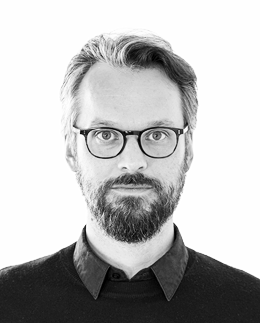The Student Life Cycle includes the transition to higher education, educational careers, the transition to and establishment of graduate employment, and alternative work modes (such as family work) in the approx. nine to ten years after graduation. In its planning phase, the Student Life Cycle project (SLC) initiates a development that will reform the survey programme at the DZHW. The project has two main objectives:
- to link and coordinate the large quantitative DZHW Panel Studies DZHW Panel Study of School Leavers with a Higher Education Entrance Qualification and the DZHW Graduate Panel
- to generate panel data over longer observation periods ('long-term panel')
Integrating the DZHW panel studies and the long-term observation of individuals provides several improvements for the analysis of the student life cycle. Educational careers can be examined more extensively in their chronological and sequential structure as well as in their embeddedness in the life course. The interactions of educational careers with other areas of life, also taking socio-demographic characteristics into account, offer analyses that go far beyond the possibilities of official statistics. In addition, determinants of switching behaviour between tertiary education and alternative activities as well as their effects on employment opportunities and non-monetary returns on education can be taken into account. Official statistics will provide a description of educational careers, success rates and changing behaviour, but cannot include explanations on the individual level (skills, motivation, attitudes, resources, perception of costs, etc.) or structural level (such as the course of studies, conditions at the university, alternative opportunities, etc.).
The development of a long-term panel that integrates the existing panel surveys also facilitates a stronger research orientation at the DZHW. In order to meet the increasing demands of quantitative empirical research for the collection and processing of empirical data, it is necessary to launch projects focusing on longer periods of investigation that also include groups that have so far only rarely been considered (such as persons without university education). In addition, long-term panel data provide a better basis for answering causal-analytical questions in ways not possible, or only conditionally possible, with the data material currently available for Germany.
Against this background, the SLC project has two main goals: on the one hand, the long-standing and proven surveys are to be continued in order to gather data for education monitoring and to prevent the loss of valuable time series. On the other hand, harmonizing and integrating the panel studies will enable the identification of new analytical potential by observing long time periods with a uniform modularized panel survey. In this way, new comparative groups are implicitly made available (e.g. for a comparison of graduates with persons without a university degree).
More specifically, the planned integrated design has the following objectives:
- to allow descriptive statements on essential characteristics of students and graduates at specific points in the education and employment process (monitoring),
- to analyse individual educational processes over longer periods of time and with higher observational density than previously possible,
- to answer causal-analytical questions on the causes and effects of different factors in the life course (duration and interruption of study, income development, adequate employment, employment behaviour, job satisfaction, etc.)
- Finally, analyses of the long-term panel are also to be connected to comparative research in the international research community. It is therefore planned that the DZHW Graduate Panel sample will be part of the EUROGRADUATE consortium. Under the EUROGRADUATE Feasibility Study, , the DZHW managed the consortium and will continue to work in the management team during an intended implementation phase of a European Graduates Study. The aim is to strengthen the perception of German higher education research and science studies in the (international) scientific community.
In addition to monitoring, this research design provides the possibility of comprehensive and detailed causal and process analyses of study behaviour and study success; of analysing the influence of scope conditions and institutions on beginning a university study programme, on study success, and on further academic qualification; and of analysing determinants of graduate employment, returns on education, and the subsequent professional and academic careers in international comparison. To conclude, an integrated design with long-term observational data and international connectivity both increases the potential for sound scientific analyses and improves the data base for evidence-based policy advice.



